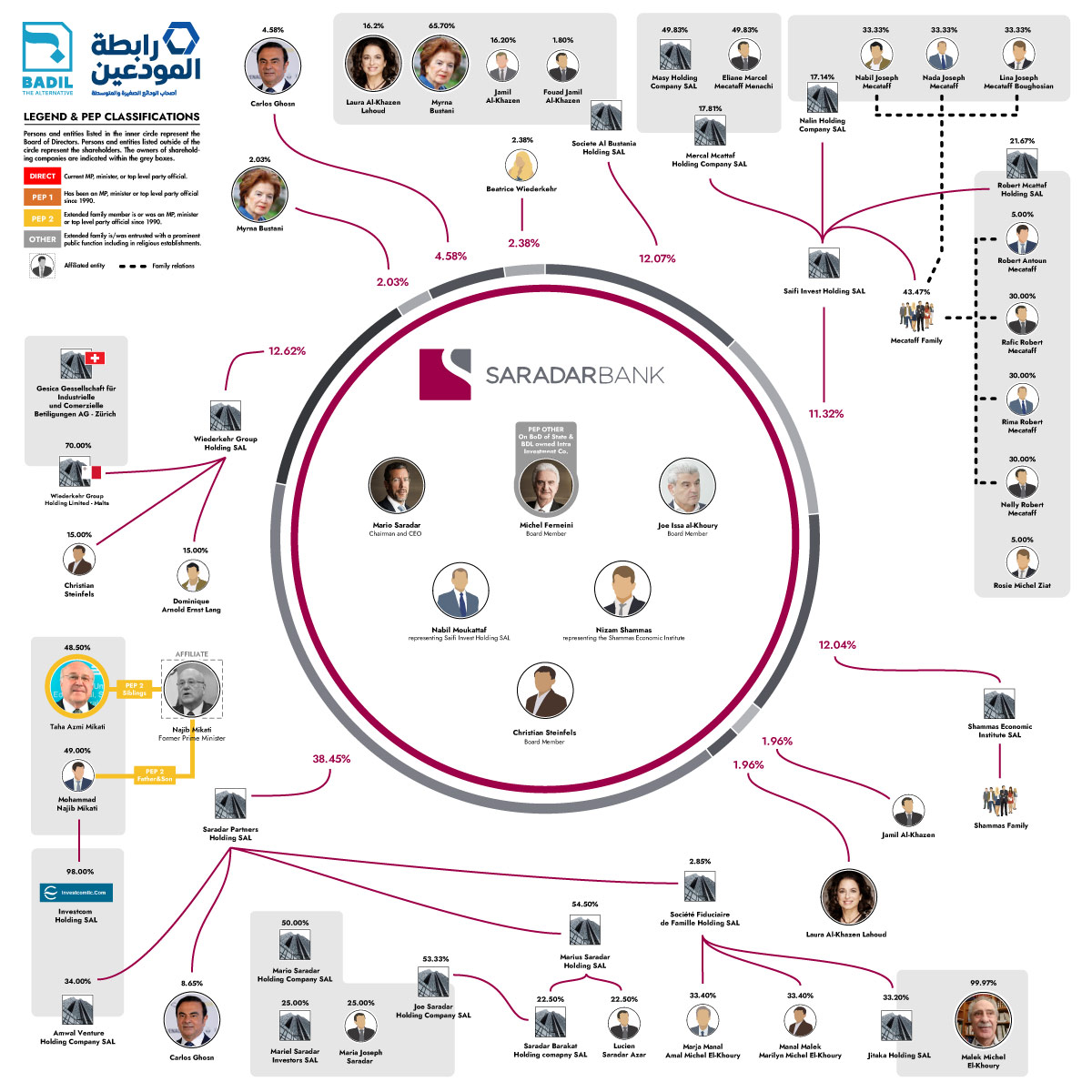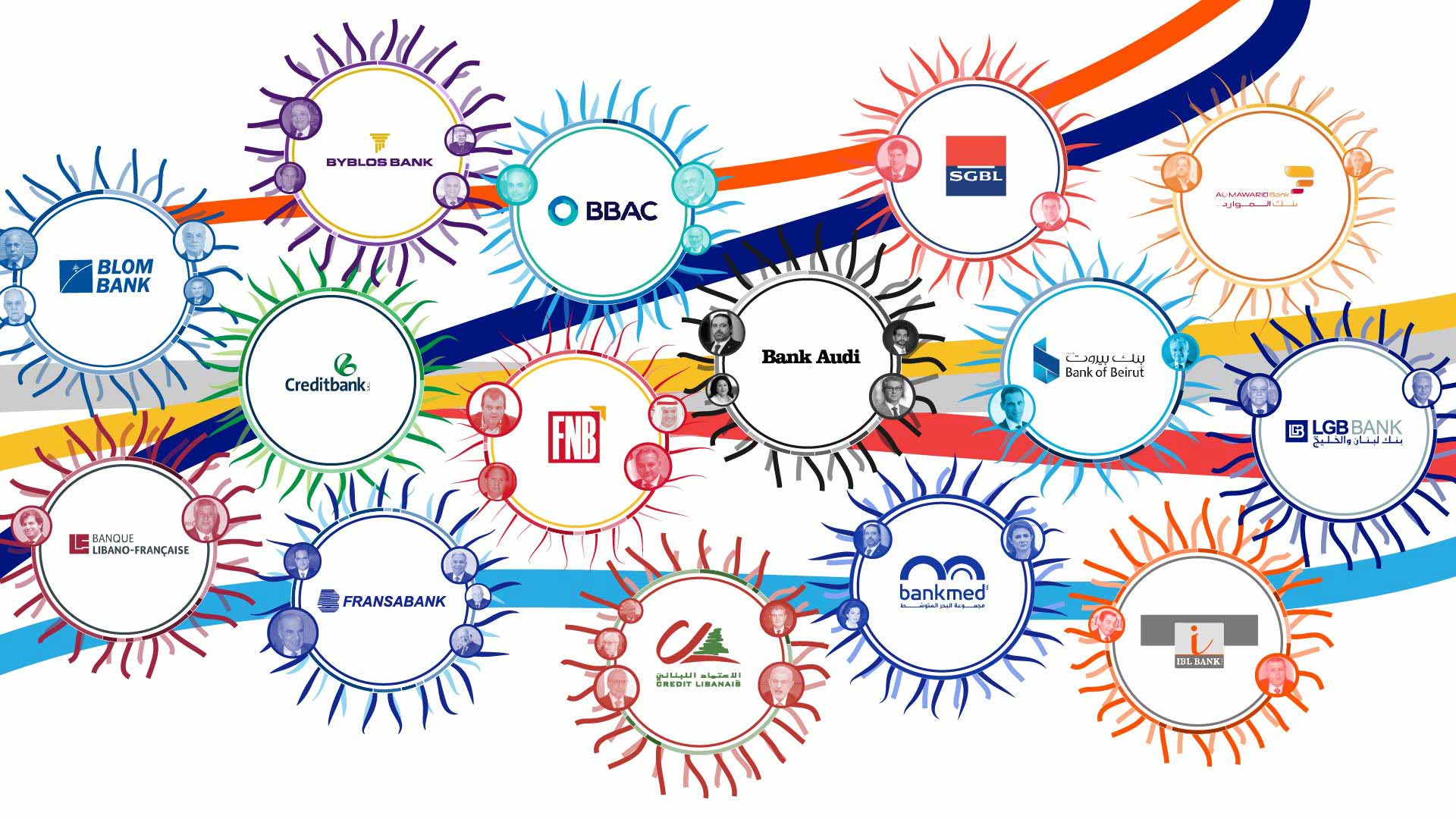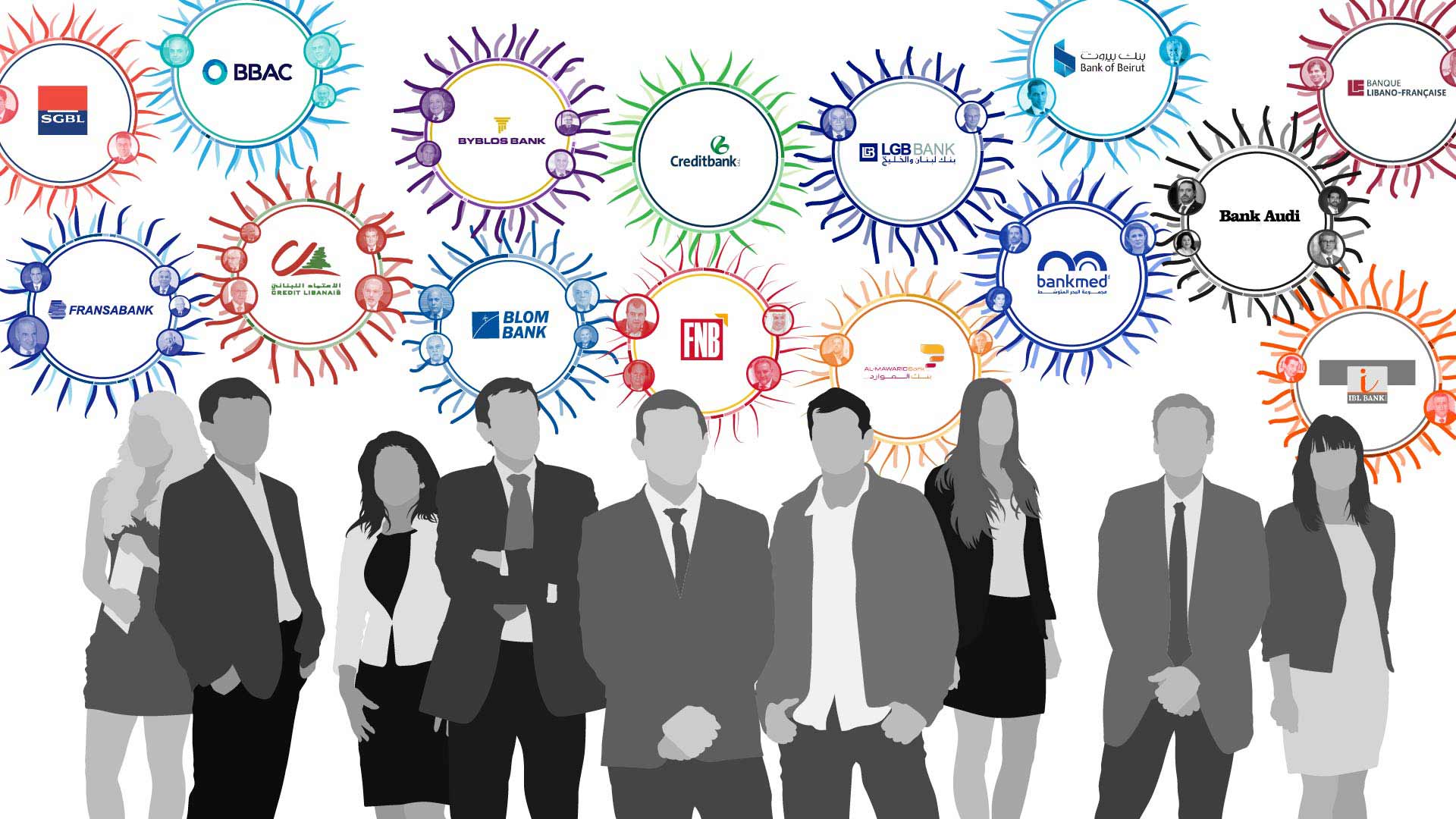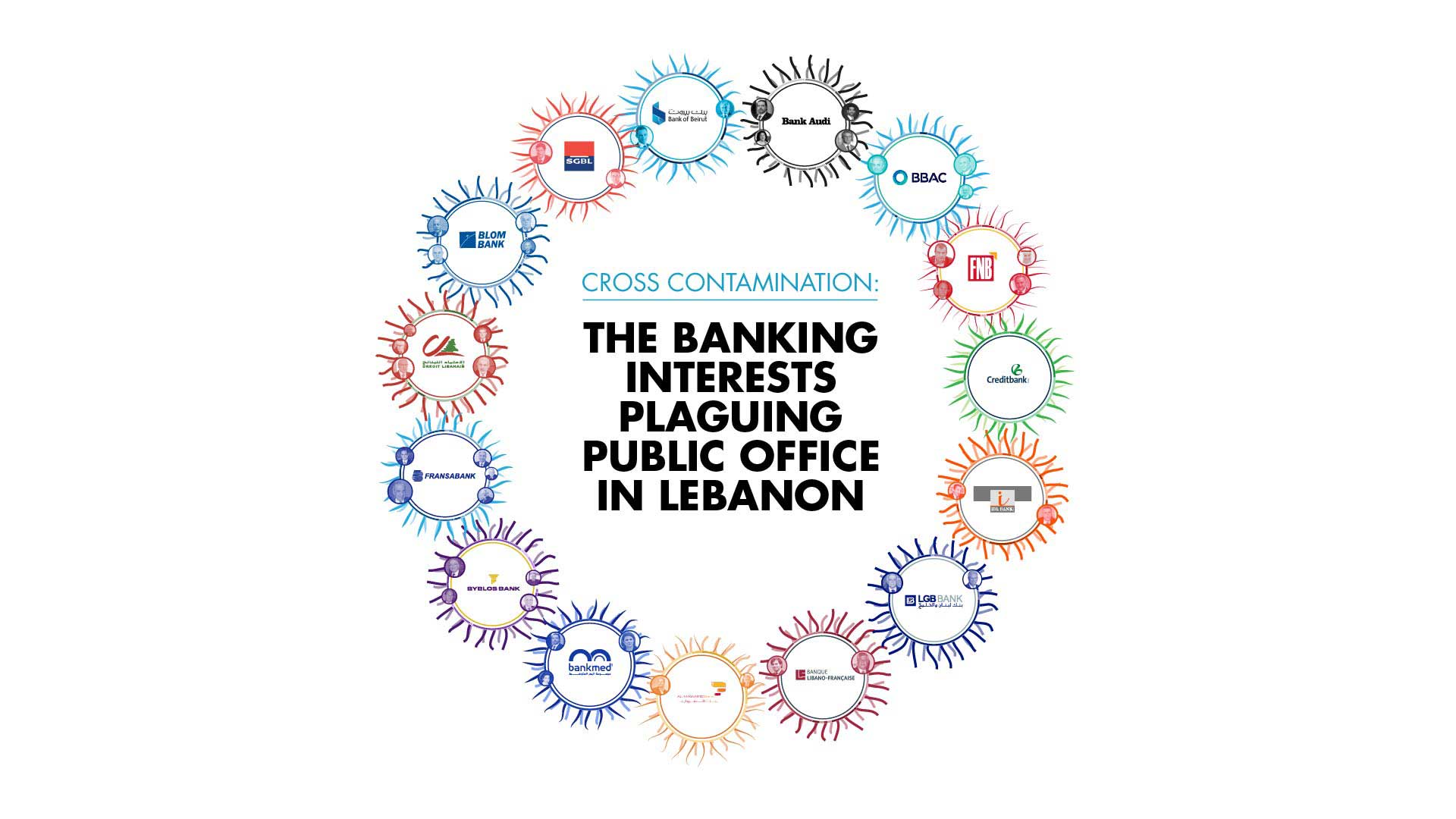Founded: 2016
Total Assets*: US$2.04 billion
Customer Deposits*: US$1.73 billion
Ranking by Assets*: 18
(*as of Dec 31, 2021, ABL Almanac 2022, converted at LL1507.5/US$)
Background
The Saradar family established its first financial enterprise in 1948 when Marius Saradar registered a joint stock company under the name Banque Saradar SAL in 1956.[1] Marius’ son Joe ascended to the position of CEO upon his father’s death in 1962 and in 1987 the bank opened a French subsidiary.[2] In 1992, Mario Saradar became CEO after Joe passed away.
In 2004, Banque Saradar merged with Bank Audi to form the Bank Audi SAL – Audi Saradar Group. In 2015, the family decided to end its partnership with Bank Audi, sold its equity in the group and proceeded to launch Saradar Bank in 2016. The family still retain a 18.2% stake in the present incarnation of the bank.[3]
Board Members
Two politically exposed persons (PEPs) sit on Saradar Bank’s board. The first is Joe Issa el-Khoury, an “Indirect3” PEP. [4] El-Khoury is classified as such as he sits on the board of “Company for Venture Capital SAL”, the company through which members of the Mikati family own a stake in Saradar (see below), and Credit Libanais.[5] As per The Alternative’s methodology, an Indirect3 PEP is classified as a person who has “has ownership or management control in a legal entity in which any of the persons who are classified under Direct/Indirect 1/Indirect 2 has economic interest”.
who sits on the board of the Intra Investment Company, a mixed ownership enterprise in which the government and central bank hold majority shares (thought to be at present 10% and 35% respectively).[6] Ferneini’s seat on the board represents a prominent public position. The Intra Investment Company was established in the wake of Intra Bank’s collapse in 1966, when the most profitable parts of the defunct bank were repackaged into a holding company.[7]
Shareholders
Taha Azmi Mikati and Mohammad Najib Mikati, the brother and son of caretaker Prime Minister Najib Mikati, own stakes (6.2 and 6.3 percent respectively) in Saradar Bank through a network of three holding companies.[8] In addition to being classified as “Indirect2” PEPs through their family ties to the caretaker Prime Minister, Taha Mikati also owns a 2.30% in Bank Audi,[9] which would further categorise him as an “Indirect3” PEP.
Carlos Ghosn, the former Renault-Nissan Alliance boss currently facing an Interpol arrest warrant, owns a 7.91% stake in Saradar.[10] Ghosn is said to have close ties with leader of the Free Patriotic Movement Gebran Bassil and enjoy political cover and patronage from members of the Lebanese ruling class.[11]
[1] ‘Our Story – Saradar Group’, accessed 13 July 2023, http://www.saradarcollection.com/english/Our-Story.
[2] ‘Our Story – Saradar Group’.
[3] Ministry of Justice, ‘Commercial Registry of Lebanon’, accessed 9 March 2023, http://cr.justice.gov.lb/.
[4] An Indirect3 PEP is a person who has ownership of management in a legal entity in which persons classified as a Direct or Indirect1/2 has an economic interest.
[5] Ministry of Justice, ‘Commercial Registry of Lebanon’, accessed 9 March 2023, http://cr.justice.gov.lb/.
[6] Karim Merhej, ‘Intra Investment Company: The “Lebanese State’s Best Kept Secret” | The Public Source’, The Public Source, accessed 19 July 2023, https://thepublicsource.org/intra-investment-company-best-kept-secret.
[7] Karim Merhej, ‘Intra Investment Company’.
[8] Ministry of Justice, ‘Commercial Registry of Lebanon’, accessed 9 March 2023, http://cr.justice.gov.lb/.
[9] Ministry of Justice.
[10] Ministry of Justice.
[11] Martin Chulov and Jasper Jolly, ‘Carlos Ghosn’s Escape from Japan “was Aided by Lebanese Officials” | Carlos Ghosn | The Guardian’, accessed 13 July 2023, https://www.theguardian.com/business/2019/dec/31/carlos-ghosns-escape-from-japan-was-aided-by-lebanese-officials.
Disclaimer
All content provided in this report (the Report) is for informational purposes only and does not constitute legal, financial or any other professional advice. The Alternative has made every attempt to ensure the accuracy and reliability of the information provided in the Report. However, due to the opacity of available sources of information, The Alternative has relied on the most up to date and self-reported figures from the Association of Banks in Lebanon (ABL) and its member banks, when available. When ABL and banks data was not available, The Alternative relied on physical copies of Lebanon’s commercial registry, online databases and other credible sources. In addition, The Alternative contacted each of the bank’s communications departments for confirmation of data regarding the shareholding and management of said banks. Only Bank Audi and BLOM Bank provided relevant information, both of which have been included in their entirety. Amongst others, the sources of the Report include various commercial registries, official bank websites, online aggregators, databases dedicated to company registration, the Organised Crime and Corruption Reporting Project (OCCRP), Bilanbanques reports, and many others.
The information provided in the Report is done “as is” without warranty of any kind, express or implied. The Alternative shall not be held liable for any errors or omissions in this information nor for the availability of this information. The Alternative does not accept any responsibility or liability for the accuracy, content, completeness, legality, or reliability of the information contained in the Report. Furthermore, The Alternative shall not be liable for any losses or damages from the display or use of this information. If anyone has information relating to the Report, The Alternative welcomes it. All information sent to The Alternative will undergo a thorough validation process, and the report will be updated accordingly. For any relevant information or inquiries, please contact [email protected].



